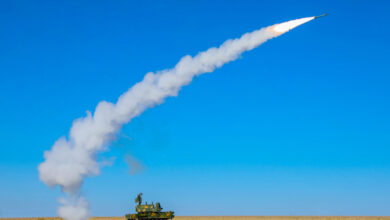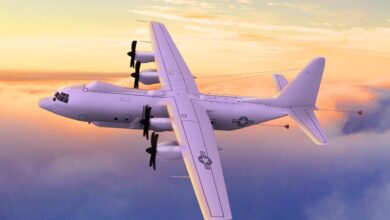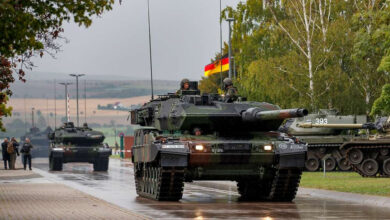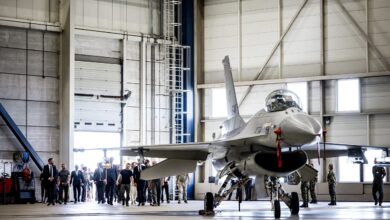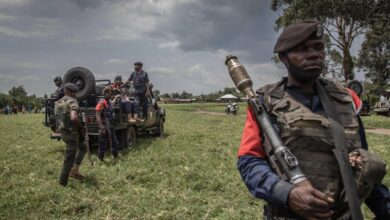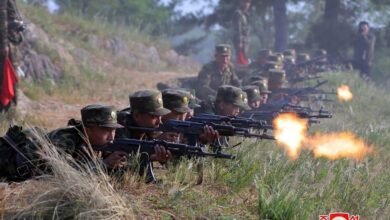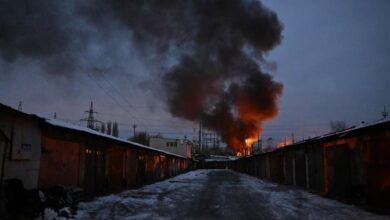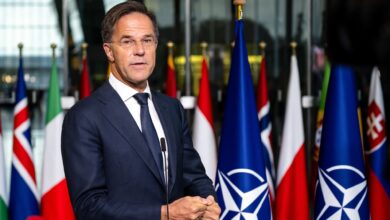Iraqi PMU leader vows retaliation for US airstrikes on Kataib Hezbollah
Muhandis, who has ties to Iran's Islamic Revolutionary Guard Corps, said the PMU response 'will be very tough' on US forces
The de facto head of Iraq’s Hashd al-Shaabi militias vowed to retaliate against U.S. forces in the country in response airstrikes that killed more than a dozen Kataib Hezbollah fighters in Iraq and Syria.
“The blood of the martyrs will not be in vain and our response will be very tough on the American forces in Iraq,” Jamal Jaafar Ibrahimi, also known as Abul Mahdi al-Muhandis, said Sunday night in response to the U.S. strikes, Reuters reported on December 30.
U.S. aircraft struck five Kataib Hezbollah positions in Iraq and Syria on Sunday, killing at least 25 fighters and commanders in response to a rocket attack last week on an Iraqi air base in Kirkuk province. That attack left one American contractor dead and wounded several U.S. military and Iraqi Security Forces personnel.
Al-Muhandis is the former commander of Kataib Hezbollah and currently serves as the deputy head of Iraq’s Hashd al-Shaabi, or Popular Mobilization Units, under the Iraqi government’s nominal authority.
Kataib Hezbollah released a statement late on Sunday calling for retaliation against U.S. forces “to expel the brutal American enemy from our holy land.” Other Iran-linked Iraqi militias, including Asa’ib Ahl al-Haq, called for a unified response to avenge the deaths of the Kataib Hezbollah members.
The pro-Hashd al-Mayadeen news agency named Abu Ali Khazali as a Kataib Hezbollah commander killed in the strikes.
Al-Mayadeen also quoted Kataib Hezbollah’s military head, Abu Ahmed al-Basri, as saying, “Our forces are ready to demolish the commanders of the American occupation and crush their rotten heads … [We are] awaiting orders.”
Some 5,000 U.S. troops are in Iraq, Secretary of State Mike Pompeo said earlier this year.
The U.S.-led Coalition against Islamic State dominates Iraq’s airspace, but the PMU – also called the Popular Mobilization Forces – boast tens of thousands of fighters on the ground in Iraq.
Muhandis wields significant influence over the militias, many of which – Kataib Hezbollah included – have ties to Iran’s Islamic Revolutionary Guard Corps and largely operate independent of Baghdad’s authority.
Friday’s rocket attack on Kirkuk’s K1 airbase was the latest in a series of similar strikes near U.S. positions often attributed to Iran-linked militias in the country, but is the first to have killed American personnel, raising fears of escalating tensions.
U.S. Secretary of State Mike Pompeo warned Iran earlier this month that any attacks that “that harm Americans, our allies, or our interests” will be met with “a decisive response.”
Tensions between the U.S. and Iran have soared since the Trump administration pulled out of a landmark nuclear agreement with Tehran last year and imposed crippling sanctions.
The U.S. has accused Iran of exploiting the agreement to advance its ballistic missile capabilities and has alleged that Iran-linked militias in Iraq of transporting weapons into Syria to threaten Israel.
Baghdad is caught in the middle of the crisis while simultaneously facing widespread anti-government popular protests.
Adil Abdul Mahdi, who resigned as Iraq’s prime minister last month but still heads the government, called an emergency meeting of Iraq’s national security council on Monday following the U.S. strikes, Al Arabiya reported.



